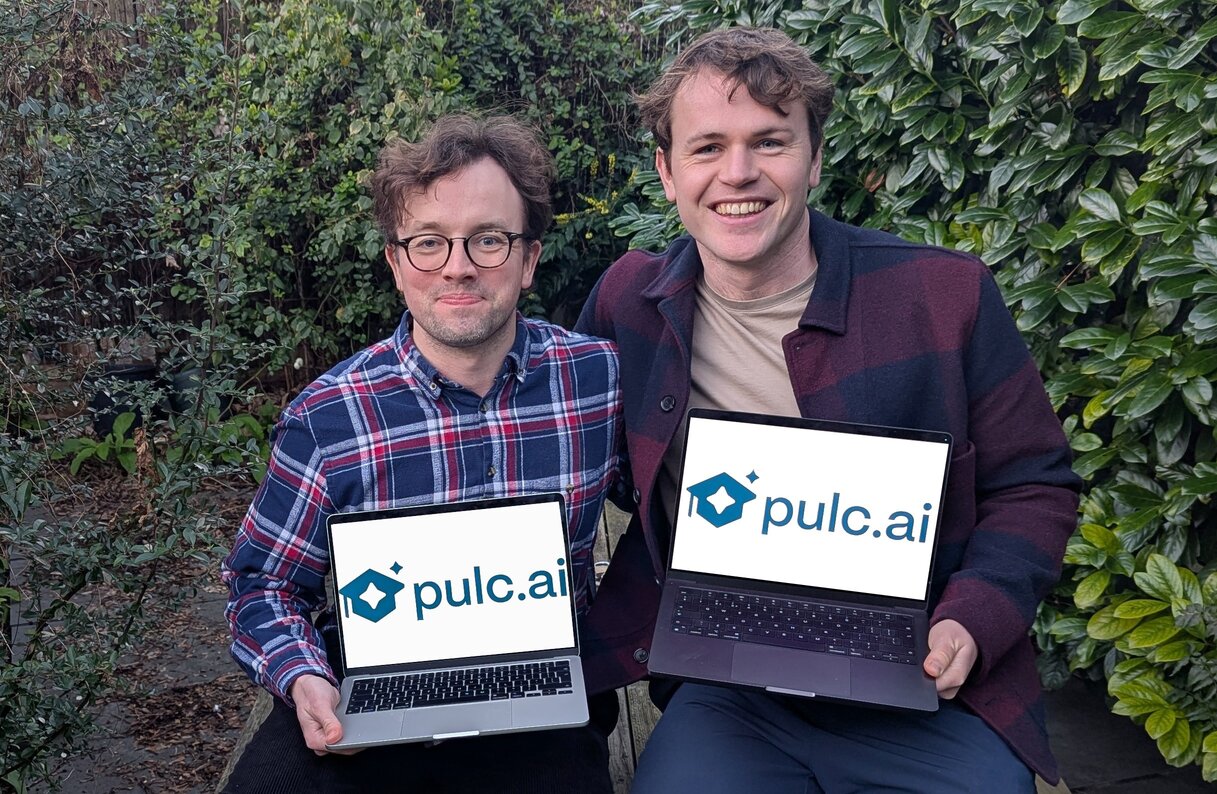
Cillian Ó Fathaigh has co-created a new AI tool which aims to address educational inequality and reduce teachers' workload
Teachers are responding well as it gives them more time to teach...[the tool] is spreading because it helps deal with teachers’ workload and is not about doing the learning work for students. It’s about humans, not robots.
Cillian Ó Fathaigh
A Gates Cambridge Scholar and his friend have created a new AI tool for teachers and students which aims to address education inequality and give teachers more time to teach. The tool has already taken off in Ireland through word of mouth and is expanding to other countries.
Cillian Ó Fathaigh, who finished his PhD in 2019 and moved to King’s College London during the pandemic. There he was all too aware of the workload pressure on lecturers and how the sudden growth of AI was making this worse, with teachers having to scrutinise essays to see if students were using ChatGPT to get better marks.
He started thinking about how AI could be used to relieve some of that pressure. He and his friend Charles Dillon, an AI expert, shared an interest in AI and education and came up with a new AI tool – Pulc – which both speeds up marking for teachers, freeing them up to do more teaching, and corrects students’ essays, giving them suggestions about how to improve them. Teachers and students – that is, humans – remain at the centre of the process, with teachers having to agree or amend AI suggestions on marking and students deciding how to incorporate the AI nudges to improve their essays.
Cillian [2014] says that often students make the same mistakes and teachers spend a lot of time writing the same comment in the margins. The time they save with Pulc means they have longer to teach, the kind of time students in smaller classes at private schools might get. Research in the UK shows teachers spend around 20% of their week – more than 11 hours a week – on marking which affects their work life balance and the attractiveness of the teaching profession.
Inequality
One of the main drivers behind Pulc is growing educational inequality. Now Assistant Professor of Philosophy at the Jagiellonian University in Krakow, Poland, Cillian has long been concerned about the impact of inequality around the world, which has significantly worsened since Covid and he believes that education can play a key role both in a negative and positive way. For instance, he says those who have access to private education and tutoring are more likely to get into top universities. “Parents are under pressure to pay for private tutors and that is undermining the state system, hollowing out spaces for the public good,” he states, adding: “End of school exams can totally determine your admission to university and impact social mobility.”
Charles and Cillian created the essay part of Pulc based on Ireland’s Leaving Certificate exams – the equivalent of A Levels in the UK. Students submit their essays, and Pulc draws on common questions that have occurred in previous test papers. It marks the essays according to the exam assessment criteria and gives comments and nudges on how to answer questions better. Students have access to an unlimited set of questions to help them practice their essay-writing skills as they can work both on past questions and any that their teachers set.
The AI is trained specifically not to give answers. “It says things like ‘it’s a good idea if you could think more about this’. That has been the main difficulty in devising this tool because AI is inclined to give answers and likes words. Its default is to give the answer – which may not be entirely accurate – and that leads to de-skilling. We had to do a lot of work to ensure that wasn’t the case with Pulc,” says Cillian, adding that the tool has been built from the bottom up with feedback from students and teachers.
Going global
Pulc is currently available in Irish and English. Cillian and Charles are keen that it does not contribute to the hegemony of English on the internet. They are now looking to expand it to other countries and other languages, taking into account that different national exam systems fit very different cultures and that they need to adapt it to different marking schemes with different assessment objectives. Cillian wants to get fellow Gates Cambridge Scholars involved from different parts of the world. “We want to avoid AI homogenising the education process and being biased towards Anglo-centric perspectives. If that understanding of different cultures is not built in early, it can result in potential colonial effects,” he says.
Pulc launched in Ireland two months ago and already 5% of all post-primary teachers are using it without Charles or Cillian having done any promotion. “It has spread because it is solving a genuine problem,” says Cillian. “Teachers are responding well as it gives them more time to teach. If we were taking a top down approach going through government or other official bodies I don’t think it would work as well as there are so many suspicions about AI in education, that it is being used for budget cutting, and about the potential for misinformation, but it is spreading because it helps deal with teachers’ workload and is not about doing the learning work for students. It’s about humans, not robots.”
Cillian and Charles have been working on the tool, which is free to teachers, in their spare time and it has occupied most of their weekends and evenings. The next move is to expand it to A Levels and GCSEs as well as to France and German exams by the autumn with a view to going global, but they are keen to get others on board. If you are interested in finding out more you can email Cillian at cillian@pulc.ai
*More information: www.pulc.ai
Watch a demo video here: https://youtu.be/4xeRwZYhFOM












